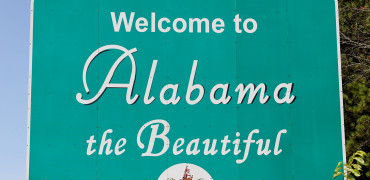If you have been watching the disastrous effects of the recent Hurricane Harvey on Houston and its surrounding area, I suspect that you, like me, will have been both shocked and inspired.
It is always horrible to view normal, everyday people trying to cope with such dramatic flooding and we’ve also seen enough examples of our own, here in the UK.
At the time of writing, scores of thousands of people have been displaced or forced from their homes, most of them leaving with little more than the clothes on their back and dreading returning to their flood-damaged properties when the waters recede.
Hurrican Harvey has also dumped an estimated 11 trillion gallons of rain over Texas and the threat looks like it will also extend to New Orleans now, a city still trying to recover from the devastation of Hurricane Katrina in 2005.
At the same time, tragedies such as this do have a way of bringing the community together and showing the better side of humanity, with countless examples of people going out of their way to help neighbours, friends and complete strangers with everything from lifts on little more than impromptu boats, handouts of bottles of water or the creation of popup soup kitchens.
The rains caused by Hurricane Harvey are acknowledged as unique in the history of the US but worldwide, heavy rainstorms are increasing in both intensity and frequency.
One of the incredible and troubling things about the flooding that you may have missed is the way whole colonies of the stinging fire ant have worked together during the flooding, demonstrating the true value of teamwork to survive.
Whilst this is jaw-droppingly scary for the poor people struggling through floodwater, it also shows how nature can adapt to cope with ‘natural’ disasters.
The impact of climate change
However, this may be the most important point about the disturbing events in Texas and beyond – the Hurricane is undoubtedly a natural phenomenon but the size, scale and devastation have been made worse because of climate change.
In an article entitled “Harvey Is What Climate Change Looks Like”, blogger and meteorologist, Eric Holthaus warns that it’s time to “open our eyes and prepare for the world that’s coming.”
Holthaus’s article looks at what the unchecked spread of building around Houston and across its neighbouring swampland has done to the flood plain.
On his blog on the the NPR.org website Geoff Brumfiel writes how climate researchers agree that climate change can be partially to blame for the devastation, showing how it has shaped the course of the storm and made Harvey wetter and worse than it would have been.
Meanwhile on The Guardian website, Michael E Mann explains the thermodynamic relationship called the Clausius-Clapeyron equation which correlates to the increase in moisture in the atmosphere for every degree of sea surface warming – meaning around 3-5% more moisture in the atmosphere at the time of Hurricane Harvey.
This alone could have meant a lot of rainfall from Harvey, but combined with the rise in sea levels as a result of climate change, and the paving over of the bayous mentioned above, this was always going to be a big one.
At the same time, the White House is occupied by a President who has at best, decided to put short-term job creation over long-term climate action, and at worst, is a genuine climate change denier as witnessed by his intention to pull out of the Paris Climate Change Agreement.
The rains caused by Hurricane Harvey are acknowledged as unique in the history of the US but worldwide, heavy rainstorms are increasing in both intensity and frequency.
Whilst there has been extensive coverage of the suffering and plight of Texans, I’ve not seen quite as much coverage of another disaster unfolding in Mumbai, where more than an estimated 1,000 people have been killed by the severe flooding that is affecting the subcontinent.
For both disasters, once the waters have subsided, the focus at this time should rightly be on helping the poor people devastated by the flooding and helping rebuild their communities and lives.
Longer term though, we can only hope that Houston serves as a lesson to any climate denialists and a wakeup call to both America in general and the world at large.
Russell Jones is PR & Content Manager for Mitsubishi Electric.
If you have any questions about this article, you can contact us via email. Or if you would like to tweet us, please follow our MEUK_LES twitter page.
We upload new articles every week so remember to check back regularly.
You can also sign up for our monthly newsletter below.


